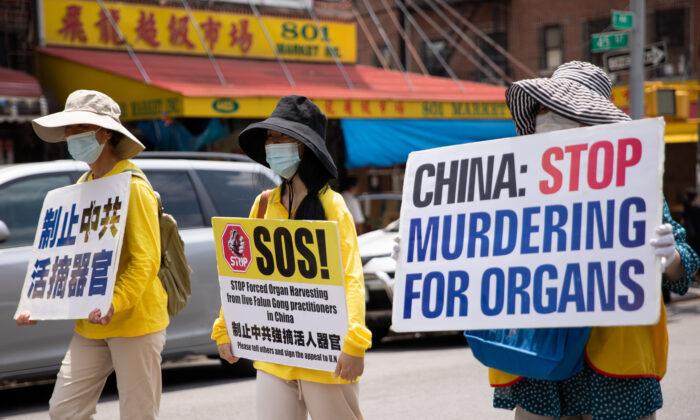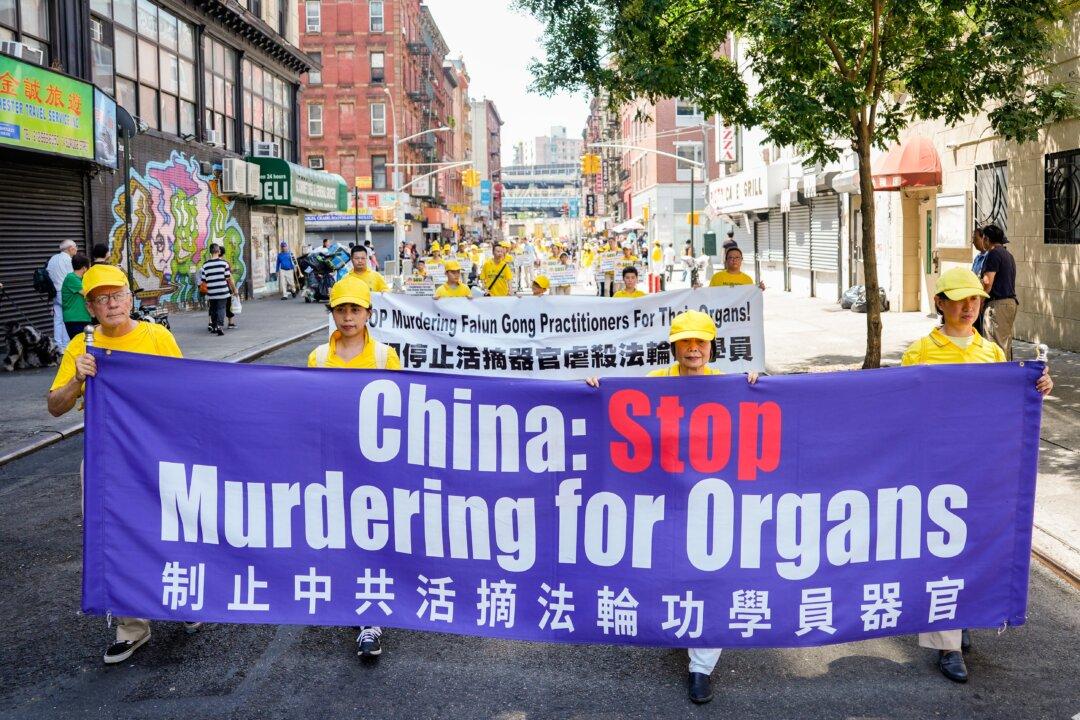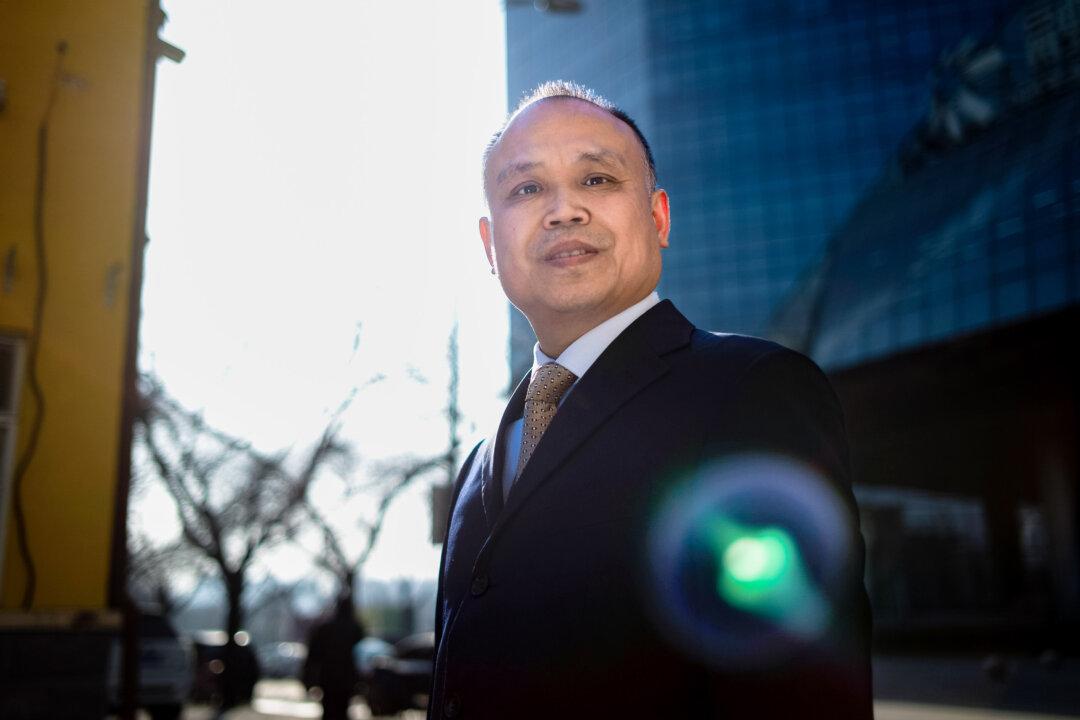The International Coalition to End Transplant Abuse in China (ETAC) and two other U.S. rights groups have criticized China for the regime’s “inadequate and misleading” responses over credible allegations of the state-sanctioned practice of forced organ harvesting.
China has turned its transplant industry into a profitable business by killing prisoners of conscience and forcibly harvesting their organs, allowing Chinese hospitals to offer patients a matching organ in an extraordinarily short amount of time. Over the years, Beijing has dismissed evidence of these crimes as “rumors” and said the country has a national donation system for organ procurement.
The report also pointed out that Falun Gong adherents in detention were “‘systematically subjected to blood tests and organ examinations.” Blood tests are carried out to check blood groups and tissue types to determine if an organ recipient can be matched with a donor.
Falun Gong, also known as Falun Dafa, is a spiritual practice based on the principles of truthfulness, compassion, and tolerance that gained popularity in the 1990s. By 1999, official estimates placed the number of adherents at 70 million—more than the 60 million members of the Chinese Communist Party (CCP) at the time. Then-leader of the CCP Jiang Zemin ordered the elimination of the practice and its adherents, beginning a brutal persecution that has led to at least 4,696 documented deaths, although the true death toll is likely much higher, according to Minghui.org, a clearinghouse for information on the persecution.
“Once again, Chinese officials have failed to provide official statistics on transplantations, waiting times for organ allocation or sources for organs, as requested by U.N. experts in 2006, 2007, and now 2021,” Susie Hughes, ETAC’s executive director, said in the statement.
“It’s time for a global boycott of China’s transplantation sector until innocent minority groups are released and ethical transplant practices are demonstrated by the Chinese state.”
In response to questions on medical examination, the three rights groups said it wasn’t enough for China to simply cite public security guidelines and orders from the cabinet-like State Council.
“The PRC [People’s Republic of China] response provides no new data that would suggest the purpose of these examinations was anything other than an assessment of organ function, required prior to organ removal,” the three rights groups stated.
The groups said China didn’t respond to a question about its measures “adopted to guarantee the need for donation and transplantation activities to be transparent and open to scrutiny.”
Neither did China properly address another question on “how data is collected to prevent abuse of transplantation systems.”
“The Chinese Communist Party’s blatant lies in response to the questions raised by the U.N. Special Rapporteurs on state-sponsored forced organ harvesting is shameful but not surprising,” said Andrew Bremberg, a former U.S. representative to the United Nations and current president of VOC, according to the statement.
“I commend the U.N. Special Rapporteurs for submitting these questions to China and urge member states to end their complacency based on the CCP’s completely inadequate response.
“It is up to member states, including the United States, to decide if the Special Rapporteurs’ work is ignored, or to finally act to demand accountability for China’s horrific practice of harvesting the organs of prisoners of conscience.”






Friends Read Free